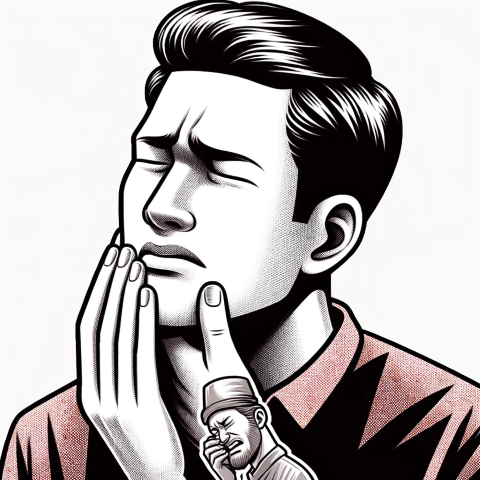In the 18th century, Pierre Fauchard, a French dentist, developed the first orthodontic device to correct teeth alignment. This early form of braces consisted of a flat metal strip applied to the teeth. Over time, orthodontics has advanced, with modern braces now using wires and brackets to gradually shift teeth into proper alignment.
Braces are orthodontic devices that are used to align and straighten teeth, improve bite, and enhance overall oral health. They are made up of brackets, wires, and rubber bands, and are designed to gradually shift teeth into their desired position. They are applied by your teeth braces Port Credit team and monitored throughout the treatment.
Because of this, many people ask if they are painful to wear or the process throughout is painful.
The discomfort experienced with braces is mainly due to the pressure exerted on the teeth and gums to shift them into the proper alignment. This pressure can cause some initial discomfort and may lead to mild pain, but it is important to know that this is a normal part of the process and the results are well worth it.
The initial discomfort of braces can include soreness in the mouth, difficulty chewing, and minor irritation to the cheeks and lips. Some individuals may experience more discomfort than others, but this usually subsides within a few days. This is temporary and is easily managed!
And as the braces continue to shift the teeth, there may be also some soreness after each adjustment appointment. This discomfort should also subside within a few days.
To help relieve the pain of braces, there are several things that can be done such as:
- Taking over-the-counter pain relievers such as ibuprofen or paracetamol.
- Applying a cold compress to the affected area to reduce swelling and numb the pain.
- Rinsing with warm salt water to soothe and heal any irritation in the mouth.
- Eating soft foods that require less chewing to reduce discomfort.
While braces may cause some temporary discomfort, they should not cause long-term pain. If the pain persists or becomes severe, it is important to consult with your orthodontist.
Ignoring braces pain can lead to serious dental issues such as gum disease, tooth decay, and even tooth loss. It is important to address any discomfort or pain with your dentist to prevent these risks.
To prevent braces pain, it is important to follow your care instructions for proper dental care and maintenance of your braces. This includes avoiding hard or sticky foods, properly brushing and flossing, and attending regular check-ups and adjustments. By following these steps, you can help reduce the chances of experiencing pain with braces.
Key Takeaways:
- Braces can cause initial discomfort and pain, but this is temporary and should go away within a few days.
- There are ways to relieve braces pain, including using painkillers, applying cold compresses, rinsing with saltwater, and eating soft foods.
- Ignoring braces pain can result in long-term problems and risks, underscoring the importance of addressing and preventing it.
What Can Help Relieve the Pain of Braces?
For many people, the thought of getting braces can be intimidating due to the fear of pain and discomfort. However, with proper care and management, the pain associated with braces can be minimized. In this section, we will discuss various methods that can help relieve the pain of braces. From over-the-counter pain relievers to simple at-home remedies, we will explore different options that can make the journey to a straighter smile a more comfortable one.
1. Over-the-counter Pain Relievers
To alleviate the discomfort of braces, over-the-counter pain relievers can be helpful. Here are steps to follow when using these pain relievers:
- Consult with your orthodontist or dentist about the appropriate pain reliever.
- Read and follow the instructions on the packaging carefully.
- Take the recommended dosage at the first sign of pain.
- Continue taking the pain reliever as needed, following the instructions.
Fact: Over-the-counter pain relievers, such as ibuprofen or acetaminophen, can provide temporary relief from braces discomfort.
2. Cold Compress
A cold compress can help alleviate the pain caused by braces. Here are some steps to effectively use a cold compress:
- Take a clean cloth or towel.
- Dip it in cold water or wrap ice cubes in it.
- Apply the cold compress to the area of discomfort for about 15 minutes.
- Repeat this process every few hours as needed.
Additionally, you can also try consuming cold foods or drinks to numb the pain temporarily. Call us if the pain persists or worsens.
3. Saltwater Rinse
A saltwater rinse can help relieve the discomfort caused by braces. Here is a step-by-step guide on how to do a saltwater rinse:
- Prepare the solution by mixing 1/2 teaspoon of salt with 8 ounces of warm water.
- Swish the saltwater solution around your mouth for 30 seconds.
- Make sure to gargle the solution in the back of your mouth as well.
- Spit out the solution after rinsing, making sure not to swallow it.
- Repeat the saltwater rinse 2-3 times a day or as recommended by your orthodontist.
The saltwater rinse helps reduce inflammation and soothe any irritation caused by braces, providing temporary relief.
4. Soft Foods
There are some foods you can eat with braces and that can provide relief from pain from braces. Here are some options:
- Mashed potatoes
- Yogurt
- Blended soups
- Smoothies
- Applesauce
- Oatmeal
- Pudding
There are of course foods what not to eat with braces. These foods are easy to chew and won’t put excessive pressure on your teeth or braces. Remember to avoid sticky or hard foods that can damage the braces. Incorporating soft foods into your diet during the initial stages of braces can minimize discomfort and allow for a more comfortable orthodontic experience.
Call a Braces Dentist in Port Credit
Getting braces can cause some discomfort, but it is generally not a painful experience. The initial fitting and adjustments may cause some soreness and pressure on the teeth and gums, but this usually subsides within a few days. Over-the-counter painkillers can help alleviate any discomfort.
It’s important to maintain good oral hygiene, have regular check-ups with the dental clinic, and avoid eating hard or sticky foods to prevent any potential pain or damage. Overall, while braces may be uncomfortable at times, the end result of having straight and beautiful teeth makes it worth it.




